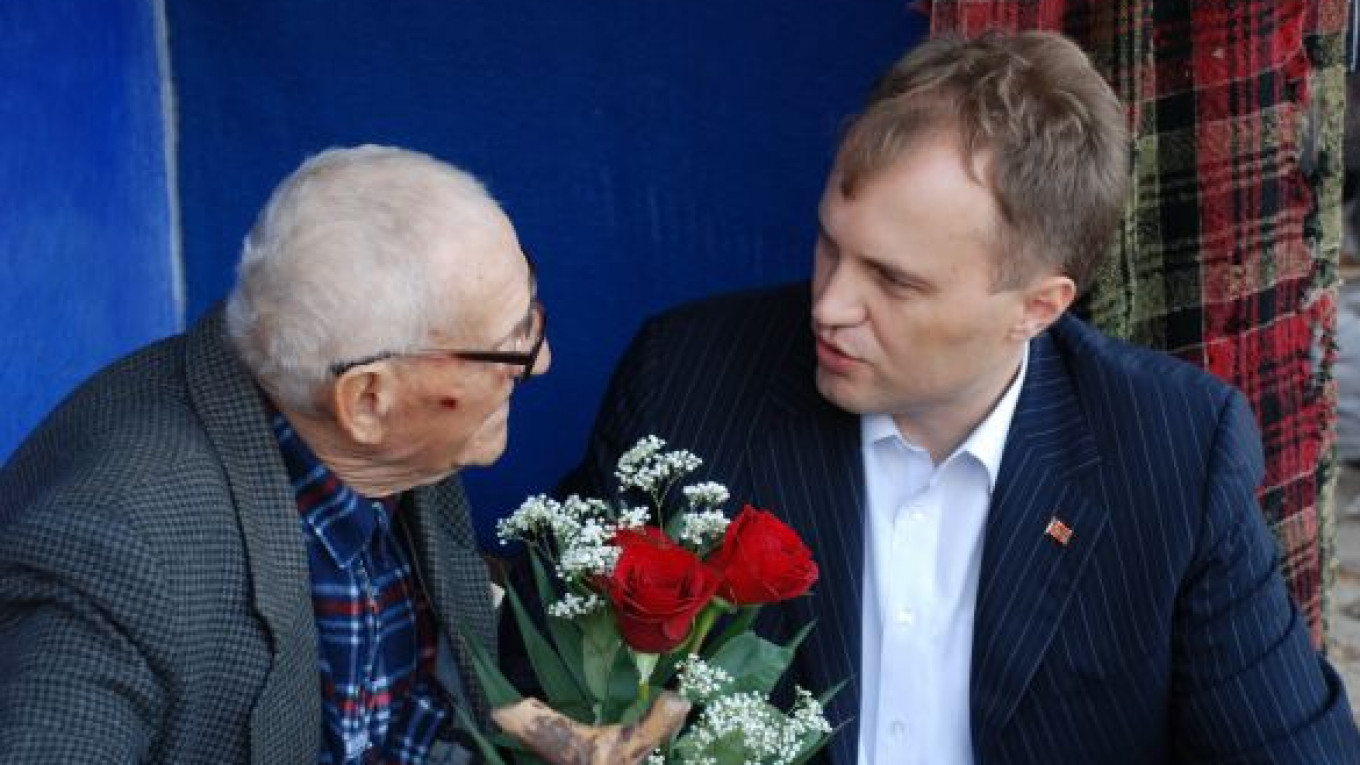The unofficial president of Transdnestr, a breakaway territory of Moldova, has proposed bringing the area under Russian law in a stand against the Moldovan government’s move toward the European Union, a statement Thursday on the presidential website said.
Transdnestrian President Yevgeny Shevchuk has submitted a bill to the legislature that would amend the territory’s constitution to make Russian law pre-eminent over locally established law, paving the way for integration with Russia.
The primarily Russian-speaking region of Transdnestr broke away from the central Moldovan government after a short war in 1992 but has remained in diplomatic limbo with an officially unrecognized government ever since.
Russia has maintained strong ties with Transdnestr and at times referenced its secession as a possible consequence of former Soviet country Moldova abandoning its long-standing relationship with Russia.
Leading up to Moldova’s signing of an association agreement with the EU last week, Russian Deputy Prime Minister Dmitry Rogozin publicly compared the country to a locomotive on a dangerously twisty track that might shake loose some of its carriages, a thinly veiled allusion to Transdnestr, Reuters reported.
Georgia and Moldova ultimately signed the agreement at a summit in Vilnius, Lithuania, despite threats from Russia that it would reduce deliveries of cheap gas that are essential for Moldova’s fragile economy.
Ukraine was expected to sign as well until Ukrainian President Viktor Yanukovych abruptly froze preparations for the agreement last month in favor of increasing ties with Russia.
The proposed Transdnestr bill lists "the problem of integration into a new economic reality" brought on by the association agreement as a reason for "exerting political will" and ensuring that the aspirations of Transdnestr’s population are recognized.
A Message from The Moscow Times:
Dear readers,
We are facing unprecedented challenges. Russia's Prosecutor General's Office has designated The Moscow Times as an "undesirable" organization, criminalizing our work and putting our staff at risk of prosecution. This follows our earlier unjust labeling as a "foreign agent."
These actions are direct attempts to silence independent journalism in Russia. The authorities claim our work "discredits the decisions of the Russian leadership." We see things differently: we strive to provide accurate, unbiased reporting on Russia.
We, the journalists of The Moscow Times, refuse to be silenced. But to continue our work, we need your help.
Your support, no matter how small, makes a world of difference. If you can, please support us monthly starting from just $2. It's quick to set up, and every contribution makes a significant impact.
By supporting The Moscow Times, you're defending open, independent journalism in the face of repression. Thank you for standing with us.
Remind me later.






